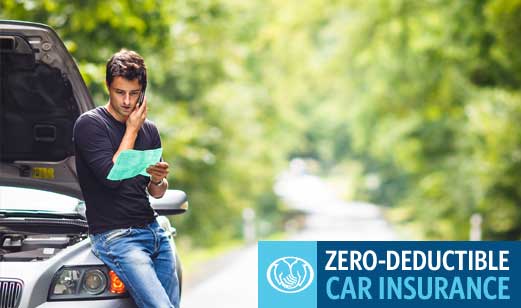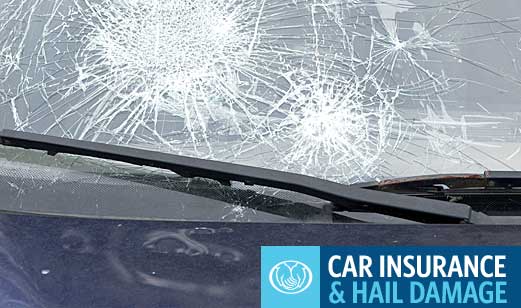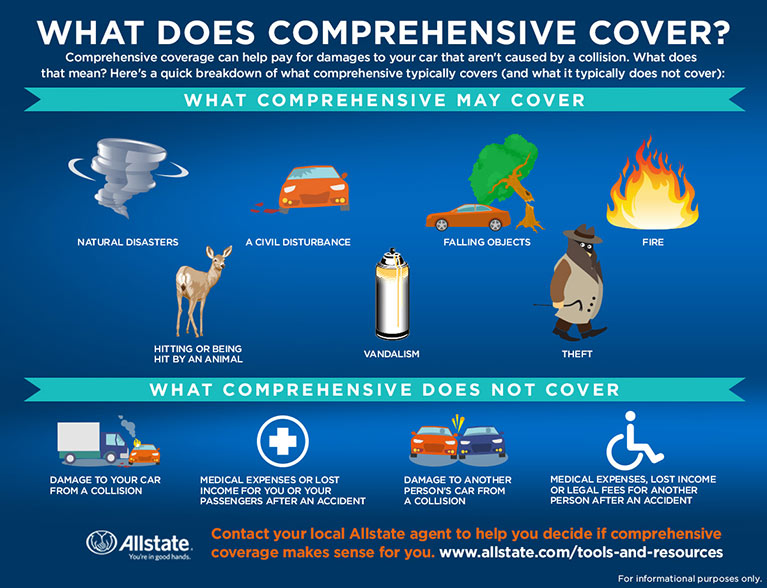Vehicle insurance (also known as, GAP insurance, car insurance, or motor insurance) is insurance purchased for cars, trucks, motorcycles, and other road vehicles. Its primary use is to provide financial protection against physical damage and/or bodily injury resulting from traffic collisions and against liability that could also arise there from. The specific terms of vehicle insurance vary with legal regulations in each region. To a lesser degree vehicle insurance may additionally offer financial protection against theft of the vehicle and possibly damage to the vehicle, sustained from things other than traffic collisions.



When you're thinking about buying car insurance, you have a number of factors to consider. One question you might have is, "What is comprehensive coverage?

How To Get A Free Car Insurance Quote In 15 Minutes Or Less
Maybe you've heard something about saving 15% or more on your car insurance. Maybe you're charmed with an eloquent little Gecko®. No matter how you found us, you're in the right place to get a fast, free, and accurate auto insurance quote online.
Just answer some simple questions about:
- Yourself
- Other drivers
- Your car
We will then ask you questions about possible auto insurance discounts you may qualify for that would reduce your insurance costs. In 15 minutes or less you'll have a personalized car insurance quote.
If you like what you see, you can purchase immediately and start enjoying GEICO's top-notch coverage.
Need help choosing the right car insurance?
We know that car insurance isn't the simplest thing to understand. Between legal requirements, optional coverage, deductible choices, and different coverage levels, it's not always easy to figure out how to choose the best auto insurance policy. That's why we're here to help.
Do you need full coverage or liability only? What does this mean?
If your car is new, leased or purchased with a loan, you'll probably need "full coverage." In case of an accident, these coverages will help protect your car and the other driver up to the limits shown on your policy.
At a minimum, full coverage includes:
- The standard liability protection
- Both collision and comprehensive coverage
Unless a third party requires full coverage (standard in many loans and leases), you can choose to carry "liability only," which typically only protects the other driver and their vehicle in case you are found at-fault for an accident. It's a good idea to make sure you could afford to replace your car out-of-pocket when considering this option.
Take a look at all of the auto insurance coverage options available from GEICO and how each one protects you.
Still deciding on what car insurance you need?
We understand that you want the best deal and the most accurate car insurance rates. That's why GEICO will store your quote for 90 days so you won't have to start over. At GEICO, we're confident that you'll receive excellent service and affordable car insurance prices.
GEICO agents are always available to help you find the right protection and give you peace of mind. Take note of your auto insurance quote reference number that will appear on the top right when you save your quote then connect with a real person.
GEICO's teams of professionally trained agents are available 24 hours a day online and by phone at (800) 947-AUTO (2886).
Once you purchase your auto insurance policy, you can sign up for instant, round-the-clock access to your policy.
Are you ready to save on your auto insurance? Go ahead, get a car insurance quote. You've got nothing to lose, and a lot to save!
Did we mention discounts?
Want to save even more? You're in luck: GEICO has many car insurance discounts that can further lower your auto insurance costs. Discounts can include these options:
- Vehicle Equipment
- Driving History & Habits
- Driver's Education
- Driver Affiliations
- Customer Loyalty
Plus, if you belong to one of the many business or professional organizations listed here, you could qualify for even more discounts on your auto insurance.
Get your motor running and get a motorcycle insurance quote!
Rev up your savings with motorcycle insurance from GEICO. No matter what you own—a sport bike, cruiser, standard, touring bike, or a sweet custom ride, you can turn to us for great rates and great coverage. We even offer scooter insurance. Enjoy the freedom of the open road knowing that the Gecko®'s got your back!
Get free motorcycle insurance quotes anytime.
Why choose GEICO for motorcycle insurance?
Thought that GEICO was all about car insurance, did you? Think again! We take motorcycles as seriously as you do, and we're pleased to provide you with top-quality coverage for your bike.
With GEICO, you get:
- Outstanding customer service (rated 4.7 out of 5 by our motorcycle insurance policyholders)
- Affordable premiums and flexible payment plans
- Secure online payment and account management
- Access to our licensed insurance professionals at (800) 442-9253.
Get a motorcycle insurance quote and see what GEICO can do for you.
Need more convincing? See what our current customers have to say about our motorcycle insurance.
Supersize Your Savings With Discounts
Shave even more off of your premium. GEICO offers a variety of motorcycle insurance discounts to maximize your savings.
Save with our many discounts if you:
- Transfer your motorcycle insurance to GEICO Motorcycle, underwritten by GEICO Indemnity Company
- Insure more than one motorcycle
- Renew your motorcycle policy
- Complete a Motorcycle Safety Foundation or Military Safety Course
Hit the Trail to Savings, Get an ATV Insurance Quote
Are you looking to insure your four-wheeler? Did GEICO cross your mind? Perhaps not, but as it happens, we're not ALL about car insurance. We like to get a little dirty on the trail too (and we could also save you money on your ATV insurance).
Don't idle! Get a free ATV insurance quote now.
Choose GEICO to Cover Your ATV or UTV
Utility model or sport model, tearing up the trails or parked in your garage, GEICO has got you covered! Flexible payment plans, 24-hour customer service and online claim reporting and tracking are just a few of the conveniences you benefit from with ATV insurance underwritten by GEICO Indemnity Company.
Go Off-Road, Not Off Budget
Along with the best coverage, make sure you get the best price. In addition to our great rates, you could save even more if you:
- Switch your ATV insurance to GEICO
- Insure more than one ATV or motorcycle
- Have an active GEICO Automobile or RV policy
- Are a mature rider
- Have an anti-theft device installed on your ATV
Sound good? Get an online quote. Have questions? Want more information? Call us at(800) 442-9253.
Pay the Way that Works for You
With GEICO, you have several options for paying your ATV insurance premium. You can pay all at once, monthly, or in 4, 6, or 9 installments, whatever works best for you. We offer ATV insurance customers the same convenient payment methods and plans we offer our motorcycle insurance customers.
Save even more!
In addition to great ATV insurance rates, you may be able to lower your premium if you:
- Insure more than one vehicle with GEICO
- Have completed a defensive driver course
Public policies
In many jurisdictions it is compulsory to have vehicle insurance before using or keeping a motor vehicle on public roads. Most jurisdictions relate insurance to both the car and the driver, however the degree of each varies greatly.
Several jurisdictions have experimented with a "pay-as-you-drive" insurance plan which is paid through a gasoline tax (petrol tax). This would address issues of uninsured motorists and also charge based on the miles (kilometers) driven, which could theoretically increase the efficiency of the insurance, through streamlined collection.
In Australia, Compulsory Third Party Personal Injury Insurance (CTP) is a state-based scheme that covers only personal injury liability. Comprehensive and Third Party Property Insurance is sold separately to cover property damage additionally, and can include fire, theft, collision, and other property damage. Third Party Property Insurance covers damage to third-party property and vehicles, but not the insured vehicle. Third Party Property Insurance with Fire and Theft additionally covers the insured vehicle against fire and theft. Comprehensive Insurance covers damage to third-party and the insured property and vehicle.
Several Canadian provinces (British Columbia, Saskatchewan, Manitoba and Quebec) provide a public auto insurance system while in the rest of the country insurance is provided privately. Basic auto insurance is mandatory throughout Canada with each province's government determining which benefits are included as minimum required auto insurance coverage and which benefits are options available for those seeking additional coverage. Accident benefits coverage is mandatory everywhere except forNewfoundland and Labrador. All provinces in Canada have some form of no-fault insurance available to accident victims. The difference from province to province is the extent to which tort or no-fault is emphasized. International drivers entering Canada are permitted to drive any vehicle their licence allows for the 3-month period for which they are allowed to use their international licence. International laws provide visitors to the country with an International Insurance Bond (IIB) until this 3-month period is over in which the international driver must provide themselves with Canadian Insurance. The IIB is reinstated every time the international driver enters the country. Damage to the driver's own vehicle is optional – one notable exception to this is in Saskatchewan, where SGI provides collision coverage (less than a $1000 deductible, such as a collision damage waiver) as part of its basic insurance policy. In Saskatchewan, residents have the option to have their auto insurance through a tort system but less than 0.5% of the population have taken this option.
Since 1939, it has been compulsory to have third party personal insurance before keeping a motor vehicle in all federal states of Germany. In addition, every vehicle owner is free to take out a comprehensive insurance policy. All types of car insurances are provided by several private insurers. The amount of insurance contribution is determined by several criteria, like the region, the type of car or the personal way of driving.
The minimum coverage defined by German law for car liability insurance / third party personal insurance is: 7.5 million euro for bodily injury (damage to people), 1 million euro for property damage and 50,000 euro for financial/fortune loss which is in no direct or indirect coherence with bodily injury or property damage. Insurance companies usually offer all-in/combined single limit insurances of 50 Million Euro or 100 Million Euro (about 141 Million Dollar) for bodily injury, property damage and other financial/fortune loss (usually with a bodily injury coverage limitation of 8 to 15 million euro for EACH bodily injured person).
The law 990/1969 requires that each motor vehicle or trailer standing or moving in a public road to have a third party insurance (called RCA, Responsabilità civile per gli autoveicoli). Historically, a part of the certificate of insurance must be displayed on the windscreen of the vehicle. This latter disposition was revoked in 2015, when a national database of insured vehicles was built by the Insurance Company Association (ANIA, Associazione Nazionale Imprese Assicuratrici) and the National Trasportation Authority (Motorizzazione Civile) to verify (by private citizens and public authorities) if a vehicle is insured. There is no exemption policy to this law disposition.
Police forces have the power to seize vehicles that do not have the necessary insurance in place, until the owner of the vehicle pays the fine and sign a new insurance policy. Driving without the necessary insurance for that vehicle is an offence that will be prosecuted by the police and will receive penalty ranging from 841 to 3,287 euro. Same provision is applied when the vehicle is standing on public road.
The minimal insurance policies covers only third parties (included the insured person and third parties carried with the vehicle, but not the driver, if the two do not coincide). Also the third parties, fire and theft are common insurance policies, while the all inclusive policies (kasko policy) which include also damages of the vehicle causing the accident or the injuries. It is also common to include a renounce clause of the insurance company to compensate the damages against the insured person in some cases (usually in case of DUI or other infringement of the law by the driver).
The victims of accident caused by non-insured vehicles could be compensated by the Road's Victim Warranty Fund (Fondo garanzia vittime della strada), which is covered by a fixed amount (2.5%, as 2015) of each RCA insurance premium.
Vehicle Discounts
A shiny new set of wheels can help you lower your car insurance rates. Your car's safety features could also help you spend less on auto insurance. Explore all the vehicle discounts from Allstate:
- Passive restraint discount
If your car came from the factory with airbags and motorized seatbelts, you could save up to 30%. - Anti-lock brake discount
When your car is equipped with anti-lock brakes, you'll score a 10% discount. - Anti-theft device discount
Secure more savings with an anti-theft device in your car—up to 10%. - New car discount
Save up to 30% if you're the first owner of the vehicle and your car is only two years old. - Economy car discount
You could save some green for driving green. Insuring an economy car could help you earn up to a 10% off your premium. - Utility discount
Save up to 15% when you own a utility vehicle with a model year of 2002 and prior.
Featured Topics:
What Is Zero-Deductible Car Insurance?
If you’re buying car insurance, the idea of a zero-deductible policy may hold appeal. After all, you wouldn't have to pay out of pocket after an accident, right?
Actually, the answer is a bit more complex than that. Whether you pay a deductible depends on several factors, including the types of coverage you select for your policy and state laws.

The Cost of a No-Deductible Policy
For starters, you’ll likely have to pay more for a zero-deductible policy up front, according to the Insurance Information Institute (III). That’s because deductibles are designed as a way for you to share the risk of an accident with an insurer, the III says, and buying a no-deductible policy puts the risk solely on the insurance company. A higher premium for a zero-deductible (or low-deductible) policy is the insurance company’s way of accepting that higher risk.
Deductibles Are Set for Each Coverage in a Policy
Another thing to know is that a deductible usually applies to each specific coverage on your policy. Typically, you’re able to set the deductible for your collision coverage and for your comprehensive coverage, and zero-deductible coverage may be an option.
When it comes to liability coverage, most insurance companies don’t require a deductible at all, regardless of your coverage selections, says the III.
Some Deductibles Determined by State Laws
On the other hand, you may find that, in some states, a zero-deductible option is not allowed for certain coverages — such as personal injury protection or uninsured motorist property damage coverage. Insurance is a regulated industry, so state law may actually require a deductible on certain coverages.
Bottom line: You may be able to choose some zero-deductible coverages, automatically have no deductible for other coverages, or be legally required to pay a deductible on other coverages. Talk with your agent — he or she can help you make the choices that fit your needs and budget.
Does Car Insurance Cover Hail Damage?
You may take pride in keeping up the appearance of your car, getting it washed and detailed on a regular basis. But in spite of your efforts to keep your car looking spotless, weather-related events such as hailstorms can literally put a dent in your best intentions.
Before hail strikes your car, it’s helpful to understand whether you have insurance coverage to help protect your vehicle after a hailstorm.

Hailstorms Can Produce Significant Damage
We've all seen photos on the news of hailstones as large as golf balls and baseballs. But, according to the National Storm Damage Center (NSDC), even hail larger than three-fourths of an inch can cause serious damage. Furthermore, the NSDC says hail can fall at speeds of up to 120 miles per hour. That means during a hailstorm, your car may suffer significant damage.
Should I Cancel My Car Insurance or Adjust My Policy?
Before you pick up the phone to cancel your auto insurance policy, take a minute to make sure that cancellation is the right decision.
A gap in your car insurance, even if it’s only for a few days, may cause problems for you down the road.That's because periods with no auto insurance could flag you as a higher risk and you may pay higher premiums in the future.
So, when is it OK to completely cancel — or not renew — your policy? And, what are some other situations when it might make sense to simply adjust your coverage? Here are four common situations that may affect your insurance:

Selling Your Car … And Not Replacing It
Maybe you're moving to an urban area and planning to rely solely on public transportation. Or maybe you’re simply reducing the number of family vehicles. Either way, if you're getting rid of a vehicle for good, it makes sense to cancel its insurance policy.
Keep in mind that stopping payments may not result in your policy being canceled. You'll likely need to contact your insurer directly for that.
Jeanne Salvatore of the Insurance Information Institute recommends talking with your insurance agent to determine whether and when you're owed a refund if you should cancel the policy before the policy it expires.
What Is Comprehensive Auto Insurance?

Comprehensive Car Insurance Coverage: A Definition
When people hear the word "comprehensive," they might think "all-encompassing"— but in car insurance terms, the word has a different meaning.
Simply put, comprehensive coverage protects you against damages to your car that are the result of covered perils not related to a collision. Think of a scenario that could cause damage to your car that has nothing to do with striking another vehicle. In many cases, this can include:
- Theft
- Vandalism
- Fire
- Natural disasters like a hurricane or a tornado
- Falling objects
- Damage done to your car by animals
- A civil disturbance, like a riot that results in damage or destruction of your car
As with all insurance policies, you should check with your insurance agent to make sure what perils are included under the comprehensive coverage of your auto insurance policy.
Why Buy Comprehensive Coverage?
When you're shopping for an auto insurance policy, you should determine whether comprehensive coverage suits your needs. Here are a couple of questions to ask yourself to determine if you may want comprehensive coverage.
- Does your lender or lease holder require comprehensive coverage? Many auto lenders and lease holders make it mandatory for your car to have comprehensive coverage. If you still owe money on your vehicle, or you lease your vehicle, you should check with the institution that holds your auto loan or lease to make sure comprehensive coverage is a requirement.
- How old is your car and what's it worth? If you have paid off your car, comprehensive coverage is optional. When you're considering purchasing comprehensive coverage, it may be a good idea to find out what your car's Kelley Blue Book value is, so that you know if you will be able to afford to repair or replace your vehicle if something happens to it. With an older car that's not worth as much money, you may be confident that you could afford to pay to repair or replace it. But, if your car is worth more or if you would not have the money at hand for repairs or replacement after an accident, buying optional coverages, like comprehensive and collision coverage, may be a smart investment.
It may be tempting to save money on car insurance premiums by opting not to buy comprehensive coverage on your vehicle. But, if your car was damaged, would you be able to afford to fix or replace it? When you're deciding to get comprehensive coverage, it may be a good idea to weigh the higher premiums that comprehensive coverage will likely lead to against how much money it could cost you to repair or replace your car in the event of a covered loss. Comprehensive coverage can provide you the peace of mind of knowing you are protected in the event of a covered peril.
As always, talk to an insurance agent to discuss all of the options open to you as you look for an auto insurance policy that's right for you.
No comments:
Post a Comment